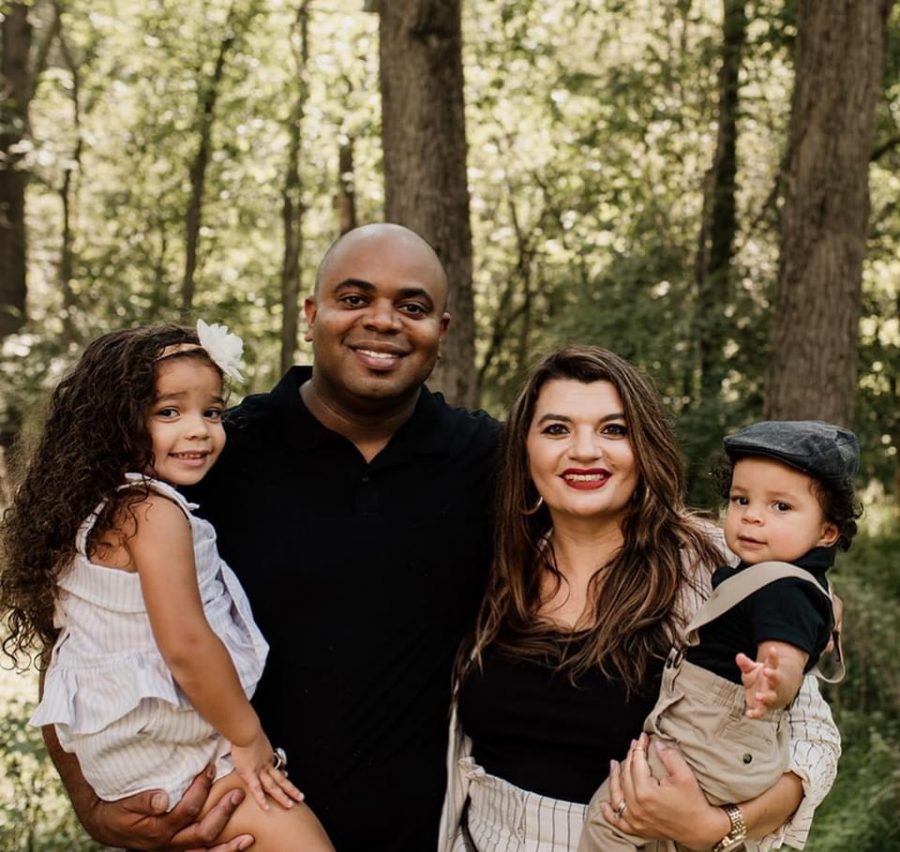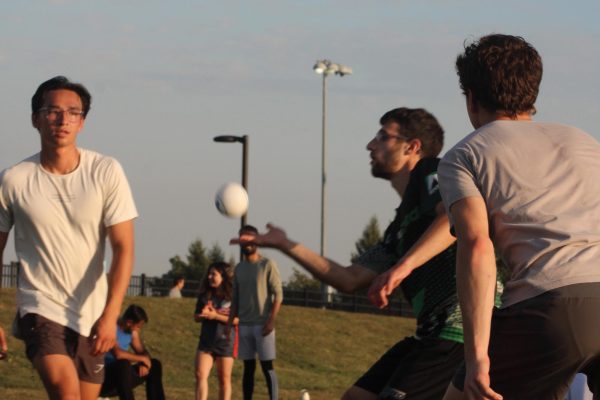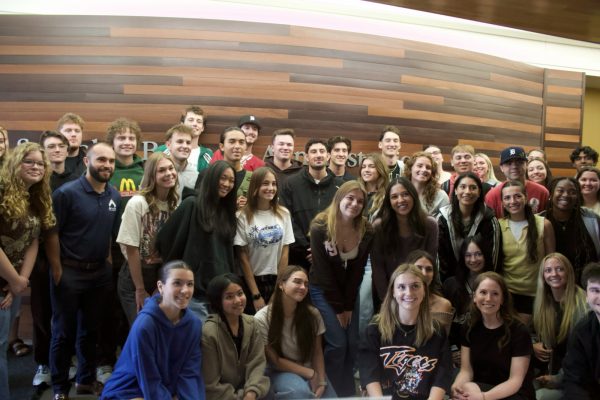Teaching in and out of the classroom: activist, professor and parent
Photo Courtesy of Rebecca Mercado-Jones
This is Rebecca Mercado-Jones’ family (Lucia Jones, Dorian Taliaferro Jones, Rebecca Mercado-Jones and Cruz Jones).
Activist, professor and mom Dr. Rebecca Mercado-Jones works to spread “radical love,” while answering the tough questions in and out of the classroom.
Mercado-Jones has always been drawn to diversity and inclusion because of the tough questions tied to U.S. history.
Some of her earliest memories include conversations about race and racism. Her mother is a Mexican woman, while her father is white, which spurred racism from some of her family.
“I’ve always been super cognizant of race because I’ve always been super cognizant of racism,” she said.
For instance, her grandmother would praise one of Mercado-Jones’s brothers for being the most white passing, saying, “at least one of them came out right,” according to Mercado-Jones.
“I just remember feeling somehow less than,” she said.
However, her mother and a handful of childhood teachers gave her positive representations of race and cultural diversity. In fact, the diversity she experienced as a student inspired some of her academic career, according to Mercado-Jones.
“I have had Black teachers — men and women — my whole life, and that is a very, very rare situation that I realize now,” she said. “There have been so many educators in my life whose classroom conversations and lessons have just resonated with me.”
Her early awareness soon turned into activism and further appreciation of her culture. When she began studying at Central Michigan University she joined a Latina sorority — Sigma Lambda Gamma — and visited Mexico for the first time.
“That was important in thinking about myself in different terms than I had previously thought about myself,” she said. “I guess I had this feeling of stigma and shame about being Mexican. Then I went to college, and I realized that it’s actually something I should have tremendous pride in.”
Mercado-Jones eventually became president of Sigma Lambda Gamma and expanded her activism with her sorority sisters. She also became involved with issues of sexual violence and advocating “enthusiastic consent.”
After earning a bachelor of arts degree in interpersonal and organizational communication and Spanish, her social justice background inspired her to continue onto graduate school at Ohio University and study communication and women and gender studies.
Now, she’s been an associate professor of communication at Oakland University for almost nine years.
“I’m lucky to be in a field where students get to see direct application between the things we’re teaching in our class and how they experience them in real time,” she said. “My hope is that students take my class and just have a greater — not just awareness but — appreciation for cultural differences.”
Mercado-Jones says the “greatest reward” she receives is when students reach out to her, and she knows her class impacted them.
She’s also extended her teaching to her two children at home — Cruz and Lucía Jones — which can pose its own set of challenges.
“This is genuinely the kind of thing that keeps me up at night because I want so much to be the progressive voice in my children’s ear — encouraging them to practice radical love at every turn,” she said. “I know that I am also human. I know that even though I hope to practice radical love, there are days that I fall short, and I just hope and pray those are the days they’re paying less attention to me.”
Recently, her 4-year-old daughter Lucía asked, ‘What is God?’ That tough question was her “code to move into the classroom” mindset.
“I try to turn it into a question to challenge them to think about,” she said. “Well, it’s less important what I think what God is and more important for you to think about what you think God is.”
The classroom is a more “comfortable” teaching space because she has more experience, while being a parent is “newer,” according to Mercado-Jones. She usually teaches students for four years at a time, while she’ll be teaching her children for 18 years. While the “stakes are a lot higher,” she has the same message regardless of where she’s teaching.
“I think it’s always important for students and my children to think about what it means to love someone radically.” She said. “What is your responsibility to the other? Don’t just think about who is the other and how to value them, think about putting radical love in everyday practice [with other people].”







Briana Bangert • Apr 19, 2021 at 2:12 PM
I am so proud of everything Rebecca has overcome. Absolutely love this!